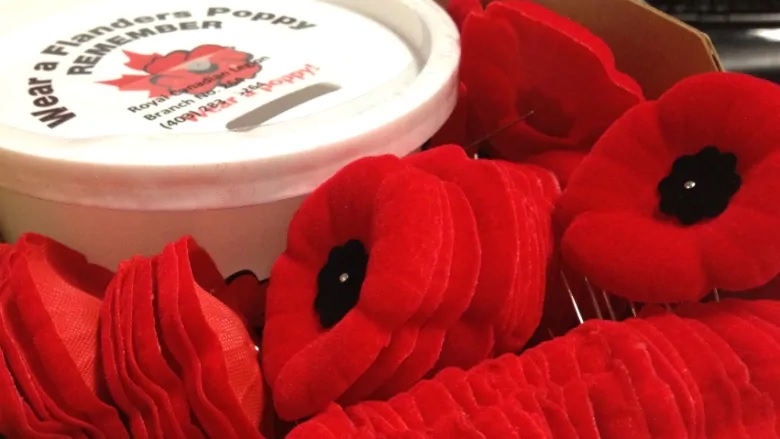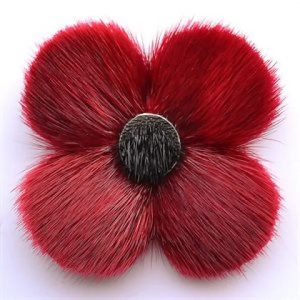Northern Canada store’s “greener” poppy option limited by legion trademark rules

The Royal Canadian Legion distributes more than 19 million poppies a year, which in turn raises millions of dollars in donations to support veterans and their families.
But as concern about single-use plastics rise, some people are opting for alternatives to the ubiquitous plastic poppy.
Heather Sealey, owner of the Itsy-Bitsy Yarn Store in Whitehorse, in northwestern Canada, said there’s demand for more sustainable options. She recently started selling felted poppies, commission-free, on behalf of a local crafter.
She said she was inundated by interest as soon as she posted an image of the poppies on social media.
“I was getting messages left, right and centre asking me to hold one for them,” said Sealey.
But it didn’t take long before the Whitehorse branch of the Royal Canadian Legion contacted Sealey and told her to stop selling them. That’s despite $2 from every $10 poppy going to veteran’s organizations.

No poppies for profit
The legion holds a trademark on the poppy when used as a symbol of remembrance, which includes “any colour or configuration.”
While there is no rule against people making and wearing their own poppy, commercial activities are not allowed.
“Generally speaking, the only place that can distribute poppies for donations is the legion,” said Nujma Bond, manager of communications for the legion headquarters in Ottawa. “No one is allowed to sell them for a profit.”
Sealey was surprised to learn about the trademark, but reluctantly stopped selling the felted poppies.
“I do find it a bit frustrating because people do want this alternative option instead of a disposable option … I thought it was a great idea to do fundraising for the legion but I’m not sure going forward what we can do.”
Sanctioned alternatives

There are some legion-approved options that diverge from the typical poppy. The organization’s online Poppy Store sells three styles of handcrafted poppies made by Indigenous artists, as well as brochures from glass and clay.
Of course there’s no rule against re-using a poppy year after year, but everyone knows how easily they fall off. After controversy about a commercially-made pin created specifically to secure poppies in place, the legion started distributing their own through some of its local branches.
Another suggestion, from Zero Waste Canada, is to put an inconspicuous piece of cork on the end poppy pin, to hold it in place.
Biodegradable poppy on the way?
The current poppy is made of a 100 per cent polyester-nylon mix, which might be recyclable in some municipalities, but the legion is looking into more eco-friendly materials for its poppies and wreathes, according to Bond.
She said that includes biodegradable materials, like paper with a wax coating. She said they need to ensure it would be strong enough to withstand wear and tear and the manufacturing process.
Barb Hetherington, director of Zero Waste Canada, is pleased the legion is thinking about how it can reduce waste. She said if they make a biodegradable poppy, they should make sure it’s compostable in every community.
“We obviously want to support the work of the legion,” she said, “But if we can help them come up with other strategies … that don’t create waste, we would like to do that.”
The legion said it will be at least two years before a new poppy is ready for distribution.
Bond said another option for people to consider is the digital poppy, which the legion launched last year as another way to donate.
Related stories from around the North:
Canada: City council of Iqaluit, Arctic Canada moves to ban single-use plastic bags, CBC News
Finland: Citizens’ initiative prompts Finnish lawmakers to consider microplastics ban, Yle News
Iceland: Iceland to host international symposium on plastics in Arctic and sub-Arctic, Eye on the Arctic
Norway: Norwegian cruise company phases out single-use plastics from its Svalbard establishments, The Independent Barents Observer
Russia: Russian Navy sends clean-up team to Arctic trash dump, The Independent Barents Observer
Sweden: Swedish government wants to go beyond EU single-use plastics ban, Radio Sweden
United States: Industry launches campaign to free oceans from plastic… how serious is it?, Alaska Public Media



